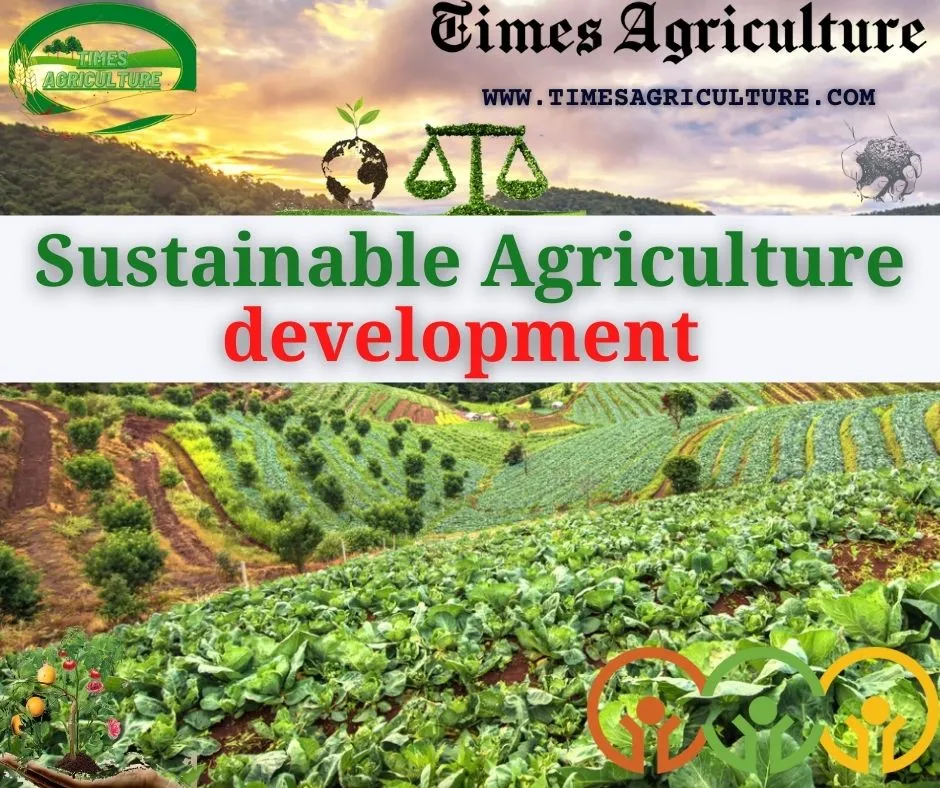
Organic farming sustainability is a fundamental aspect of modern agricultural practices, aiming to harmonize food production with environmental preservation. This concept revolves around implementing methods that maintain ecological balance and promote long-term health for both the land and the crops it produces. At the heart of organic farming sustainability is the emphasis on reducing reliance on synthetic inputs, such as pesticides and fertilizers, which can have detrimental effects on soil health, water quality, and biodiversity. Instead, organic farming utilizes natural processes and materials to enhance soil fertility, manage pests, and conserve resources, all of which contribute to a more sustainable agricultural system.

Soil health is a cornerstone of organic farming sustainability. Healthy soil is essential for growing robust crops and supporting overall farm productivity. Organic farmers employ practices such as composting, green manure, and cover cropping to improve soil structure and nutrient content. Composting involves the decomposition of organic matter, such as plant residues and animal manure, which enriches the soil with essential nutrients and boosts microbial activity. Green manure, typically grown and then incorporated into the soil, provides additional organic matter and nutrients, further enhancing soil fertility. Cover crops, planted during off-seasons, help prevent soil erosion, suppress weeds, and improve soil organic matter. These practices collectively contribute to organic farming sustainability by maintaining a fertile and resilient soil base.
Water management is another critical component of organic farming sustainability. Efficient water use is crucial for conserving this precious resource and minimizing environmental impact. Organic farmers often employ techniques such as drip irrigation, which delivers water directly to plant roots, reducing wastage through evaporation and runoff. Rainwater harvesting systems can also be integrated into organic farms to capture and store rainwater for irrigation purposes. Additionally, organic farming encourages practices that improve water infiltration and retention, such as maintaining ground cover with organic mulch and minimizing soil disturbance. By focusing on these water management strategies, organic farming supports sustainability goals and helps ensure a stable water supply for future generations.
Pest and weed management in organic farming are designed to minimize environmental impact while promoting crop health. Organic farming sustainability is achieved through methods such as integrated pest management (IPM), which utilizes biological controls, natural predators, and physical barriers rather than synthetic pesticides. For example, introducing beneficial insects, like ladybugs or lacewings, can help control pest populations naturally. Crop rotation and companion planting also play a role in pest and weed management by disrupting pest life cycles and enhancing plant health. Mulching helps suppress weeds and conserve soil moisture while reducing the need for chemical herbicides. These integrated approaches to pest and weed management align with the principles of organic farming sustainability by promoting a balanced ecosystem and reducing reliance on synthetic inputs.
Biodiversity is another critical aspect of organic farming sustainability. By fostering a diverse range of plants, animals, and microorganisms, organic farms create resilient ecosystems that are better equipped to handle pests, diseases, and environmental stressors. Polyculture, the practice of growing multiple crops in the same area, supports biodiversity and helps reduce the risk of crop failure due to pests or diseases. Agroforestry, which integrates trees and shrubs into agricultural systems, enhances habitat diversity and provides additional ecosystem services, such as soil stabilization and nutrient cycling. Maintaining natural habitats, such as hedgerows and wildlife corridors, within farm boundaries also supports biodiversity and contributes to the overall health of the ecosystem.
Economic sustainability is an important consideration in organic farming as well. Although organic farming can involve higher initial costs and more labor-intensive practices, it often provides opportunities for premium pricing and access to niche markets. Consumers are increasingly seeking organic products and are willing to pay higher prices for goods produced with sustainable methods. This market demand can support the economic viability of organic farms and provide a stable income for farmers. Additionally, organic farming can offer resilience against market fluctuations and input price volatility, contributing to long-term economic stability.
Education and community engagement are essential for advancing organic farming sustainability. Farmers, researchers, and consumers must work together to share knowledge, promote best practices, and support policies that favor sustainable agriculture. Workshops, extension services, and public awareness campaigns can help increase understanding of organic farming principles and their benefits. By fostering a culture of sustainability and encouraging collaboration, the organic farming community can drive progress toward a more sustainable and resilient agricultural system.
In conclusion, organic farming sustainability encompasses a broad range of practices and principles aimed at harmonizing food production with environmental stewardship. By focusing on soil health, efficient water use, integrated pest and weed management, biodiversity, and economic viability, organic farming supports a more sustainable agricultural system. As the global demand for sustainable food production grows, organic farming will continue to play a crucial role in achieving these goals, contributing to the long-term health of our planet and its ecosystems. Through ongoing innovation, education, and community engagement, the principles of organic farming sustainability will drive progress toward a more resilient and sustainable agricultural future.









